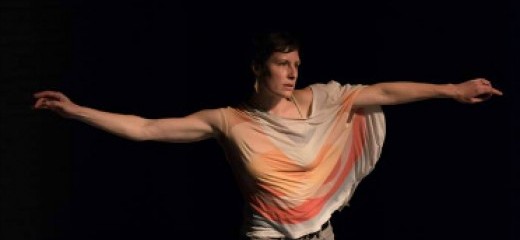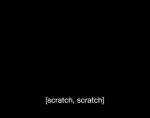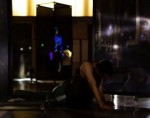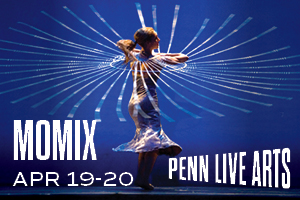
Photo: Johanna Austin
Scratch Night Returns
by Ellen Chenoweth
The lights went down in the new FringeArts theater at the Race Street pier and there was a chorus of PBRs snapping open all around me, like an orchestra tuning up. The steeply-raked space was nearly full to its 225 seat capacity despite the snow day and bitter cold for the return of Scratch Night. With each artist given seven minutes to show work that may be finished or still in progress, the tidbits often felt like a live advertisement for the longer work. But with free admission and free beer, no one was complaining.
Three moments in the evening stood out in their intensity or departure from predictable performance customs.
1.
The first instance came as Scott Sheppard and Jennifer Kidwell of Groundswell Theatre Company portrayed a white teacher and a black teacher, respectively, responding to an inflammatory racist message left in a hall, in a small excerpt from their play
Underground Railroad Game. There was a palpable sense of intense discomfort, punctuated by tentative laughter.
Underground Railroad Game was framed as the two teachers confronting their students about a racist incident at their school, but the FringeArts audience became the students. This sense of implication, along with the knowledge that the same kind of episode is happening at college campuses
across the nation, created some serious squirming, both internal and external.
2.
Dancers and romantic partners Megan Mazarick and Les Rivera began their excerpt of
love-joy diver sporting full-body white unisex uniforms while doing a silly dance around the stage, set to Edward Sharpe and the Magnetic Zeros’ catchy tune
Home. ¨It seemed like they might be on a honeymoon in outer space. The work reflected their relationship, with dialogue snippets (“this is happy white people music” Rivera complained) and non-verbal dynamics played out in front of us.
So it was perfect, albeit unplanned, when Rivera told the crew to cut the music and Mazarick reluctantly backed him up. Rivera assured the audience “We’re not making this shit up,” and Mazarick confirmed that this was not part of the show. I loved the moment, as it beautifully exposed some of the behind-the-scenes labor an artist performs. Rivera requested, “Can you play the track called ‘love joy diver for scratch night’?” and alluded to tech rehearsal, calling attention to elements that are often invisible. Mazarick light-heartedly let the audience in on the disagreement between the performers, “I wanted to keep going, but Les said we should stop.” I admired the volume of information they were secretly communicating to each other while simultaneously being watched by all of us. The rupture reinforced the authenticity of the work; it exposed the couple’s negotiations in real time.
3.
Local dancer (and thINKingDANCE editor) Megan Bridge discussed an ambitious project--choreographing a solo set to an opera by celebrated avant-garde composer Robert Ashley, DUST. The work is set to premiere in spring of 2015. Bridge shared that she had thought about the project for years before finally getting up the nerve to ask Ashley for permission to use his work and receiving it last summer. She played excerpts of the opera and I marveled at how rare it was for a still, silent audience to listen to recorded music together. If you blinked, you missed Bridge transitioning from calmly describing DUST to performing a full-body quiver-quake of a dance, initially facing away from the audience. We listened to a bit more together and then Bridge left us with another small tidbit from the fledgling project, this time 30 seconds of improvisation in response to a piece of the score.
Later that night, news blipped across my computer screen that Robert Ashley had passed away. The experimental composer was a
unique American visionary, prompting John Cage to write of one of Ashley’s most well-known works: “What about the Bible? And the Koran? It doesn’t matter. We have
Perfect Lives.”Ashley had died in the afternoon, and that evening, a couple hundred Philadelphians had listened to his music in respectful silence, not knowing of his passing. We saw a dancer collaborate with his work, embodying his music as he slipped into the next world. It felt comforting to know that his work lives on, with new partners, new interpreters, and new audiences.
Scratch Night, FringeArts, March 3, 2014
By Ellen Chenoweth
March 11, 2014







.png)


